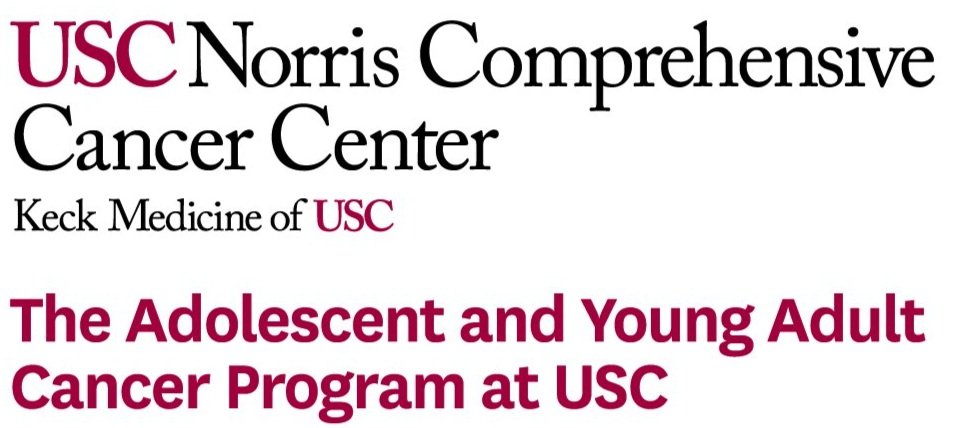Who We Are
According to the National Cancer Institute, about 89,000 adolescents and young adults (ages 15 – 39) are diagnosed with cancer in the United States each year. This accounts for about 5% of cancer diagnoses in the United States, eight times higher than cancer diagnosis among children ages 0-14.
Because cancer in young people is rare, there are many unique challenges that patients face throughout their cancer journey. It is important to find the right doctors and hospitals that not only specialize in treatment of AYA cancer, but also provide holistic and multidisciplinary care to address psychological and social concerns for patients.
The newest oncology program at the Keck Medicine of USC, AYA@USC – The Adolescent and Young Adult Program, was established in 2013 and represented a collaboration between the USC Norris Comprehensive Cancer Center and USC Norris Cancer Hospital, Children’s Hospital Los Angeles, and Los Angeles County Hospital. The program is based on a joint medical leadership model by USC leaders in pediatric and adult oncology, in a major academic medical center and as part of an NIH – funded Comprehensive Cancer Center.
Our mission is to improve health outcomes and quality of life of adolescents and young adults with cancer through supportive care and research that address the medical, physical, psychosocial, spiritual, financial and legal aspects for these patients; to promote awareness of AYA oncology among healthcare providers and deliver collaboratively an efficient and effective model of care; to establish a dynamic AYA cancer peer support community in Southern California area and beyond through psychosocial support, advocacy, education, community outreach and partnership.
One day young people with cancer will not feel helpless or isolated anymore!
Background
Cancer is the leading disease-related cause of death for individuals ages 15 – 39, a population defined as ‘adolescents and young adults’ (AYA). While great advances have been achieved with cancer survival rates in other age groups, including both pediatric and older adult populations, progress with AYA oncology patients had not improved in nearly 30 years due to the lack of focus on AYA-specific clinical and supportive care models as well as biological and clinical research. The reasons for this care gap are many, including the lack of focus on AYA clinical and supportive care models, differences in tumor biology, limited health insurance coverage, feelings of isolation, low participation in clinical trials and poor adherence to treatment.
In 2006, the National Cancer Institute (NCI) assembled a working group and tasked them with addressing the research and cancer care needs of AYAs. The recommendations were coalesced into a strategy plan outlining the major areas of need and development. The major areas included recommendations concerning awareness, education, prevention, diagnosis, treatment, biology research, quality of life, and psychological concerns. One of the key recommendations was to “ensure excellence in service delivery across the cancer control continuum” through the establishment of standards of care and collaboration of stakeholders; including a set of guidelines on the components of an AYA center of care in the United States. The endeavors of the national work group have progressed in brining attention to the special needs of AYAs with cancer. Yet much work remains to be done in order to provide optimal care along the cancer continuum for this population.
The Adolescent and Young Adult Program at the University of Southern California (AYA@USC), initiated in 2013 by Dr. Stuart Siegel, represents a collaboration between the USC Norris Comprehensive Cancer Center and Norris Cancer Hospital (USC Norris), Children’s Hospital Los Angeles (CHLA), and Los Angeles County Medical Center (LAC+USC) designed to address this “AYA Gap.”

